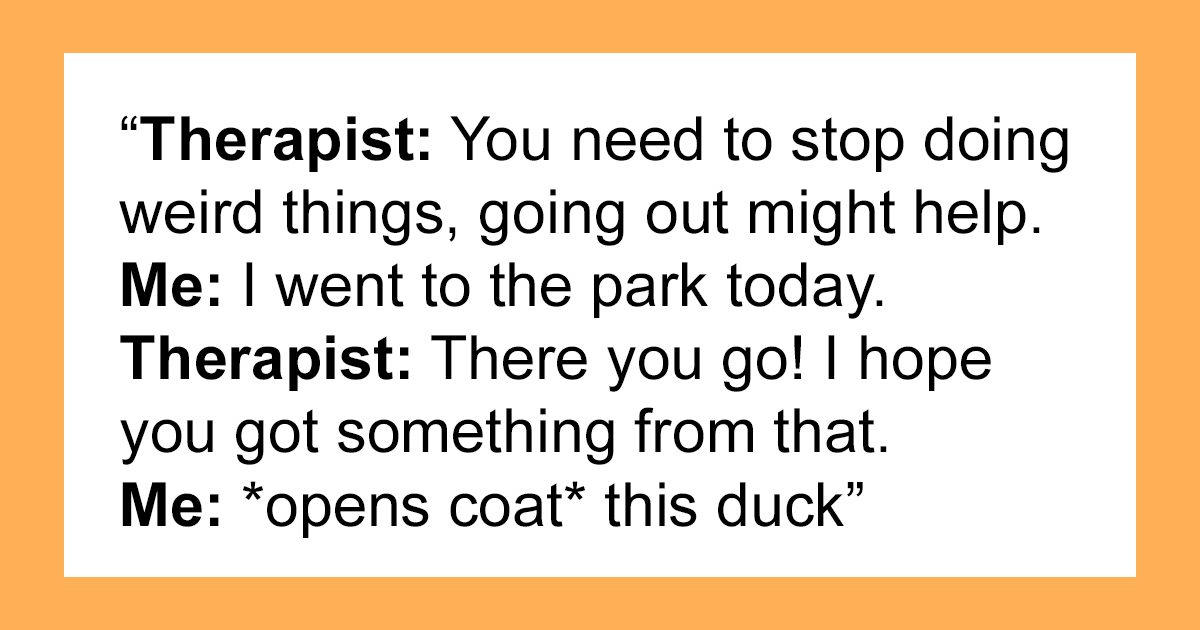Younger generations are often criticized as being lazy and entitled, but this isn’t a new phenomenon at all. From branding Gen Z as the “snowflake generation” to accusing Millennials of prioritizing buying avocados over houses, many Boomers see them as someone who hasn't figured out life yet.
But can we blame them? With the cost of living crisis, climate change, the pandemic, and geopolitical tensions weighing heavily on their minds, it can be hard for anyone. Evidence shows that nearly half of Zoomers (46%) and four in 10 millennials (39%) feel stressed most of the time. Not to mention burnout at work, which has been at an all-time high since 2021. So it’s no surprise that these youngsters prefer to do the bare minimum.
It seems that the younger generations are simply tired of the chaos and pressures of the modern world. Fortunately, the subreddit “Anti Work” is a place where they can vent their frustrations and blow off at least some of the accumulated steam.
We’ve compiled a list of screenshots that prove the struggles of Millennials and Gen Z and why we should consider cutting them some slack for not showing up as their best selves every day.
The youngest employees are already feeling stressed and exhausted, even in the earliest stages of their careers. Psychotherapist Kim Hollingdale believes that the younger generations have “the worst collection of stressors” among workers right now - from a lack of power at work to the hustle culture and inability to relax. Although all generations might face a lot of professional challenges, the youth have the least authority to set boundaries and say no to tasks. Many feel pressure to perform and take on a big workload that leaves them exhausted.
Another big stressor for Gen Z and Millennials is money, with about 40% reporting worries about their finances. Of course, many workers have also encountered similar problems, but it’s more severe now as the cost of living is rising much faster than salaries. For example, in the US, home prices increased by 121% in the last 56 years, while income rose only by 29%. This makes it more difficult to reach milestones like marriage and homeownership.
Additionally, people who feel like they are unprepared or have failed to reach big goals might suffer from milestone anxiety. It may seem that everyone else is graduating, buying a house, getting married, being promoted, or starting a successful business, and you’re running slightly behind to take these steps. New research suggests that the pressure to hit such milestones is affecting younger people more than previous generations. Shockingly, even 83% of 16 to 24-year-olds feel forced to reach them. In retrospect, that’s way too young to be worrying about not being good enough just because you don’t have a house and all your friends do.
Nevertheless, in order to reach these aims faster, Gen Z and Millennials pick up additional work or start side hustles to get extra money. Freelance content creation, graphic design, small online businesses, and tutoring are just a few popular options among younger people that are flexible enough to combine with a full-time job and provide added income.
These pursuits help to unleash creativity and make them more financially stable, all while creating a passion project or a brand that belongs solely to them. However, long additional working hours have been linked to exhaustion and burnout, which Zoomers and Millennials are strongly linked to.
Contrary to older generations’ beliefs, their successors aren’t work-shy; they’re just not that fond of hustle culture. Today, many focus less on working to the point of extreme fatigue for an employer in order to move up the corporate ladder and more on building their dream careers by themselves. It also acts as a security blanket in case a company fires them. All that’s left is to move forward or take on your passion project full-time. After you start working for yourself, you can’t really get fired.
While searching for a healthy work-life balance, some younger employees are “quiet quitting” their jobs. It’s a phenomenon when workers are fulfilling their responsibilities and working hours without going above and beyond for a company that just doesn’t seem to care about them. They’re merely starting to work for what they’re paid for. This is a response to many things in work culture - unreasonable expectations, a toxic work environment, a heavy workload, and micromanagement. If these issues aren't addressed, the employee may have no choice but to dial back on their efforts.
Of course, there are areas where they could improve, for example, by changing the ways they choose to unwind after work. Gen Z is more likely to use social media to relax, with some spending 4.5 hours on it daily. This makes it more difficult to ignore work notifications that are a persistent reminder of all the haunting tasks waiting for you, which doesn’t sound relaxing at all. Also, if you’re always on the phone, it’s more compelling to answer a work text than if you’re taking a stroll outside or having dinner with your family.
Gen Z and Millennials desire a more balanced and purpose-driven approach to work. They encourage companies to adapt to new values centered around their employees and focus on their mental health and overall well-being. As a result, employers are changing to attract and maintain this young workforce. For example, some jobs provide their workers with unplanned mental health days a year, and the team is regularly reminded to take breaks and prohibited from doing any work on their days off. The ones calling Gen Z and Millennials lazy aren’t really seeing the full picture here. Young people aren’t slacking right now but bringing a much-needed whiff of fresh air into the rigid work culture.












 English (US) ·
English (US) ·